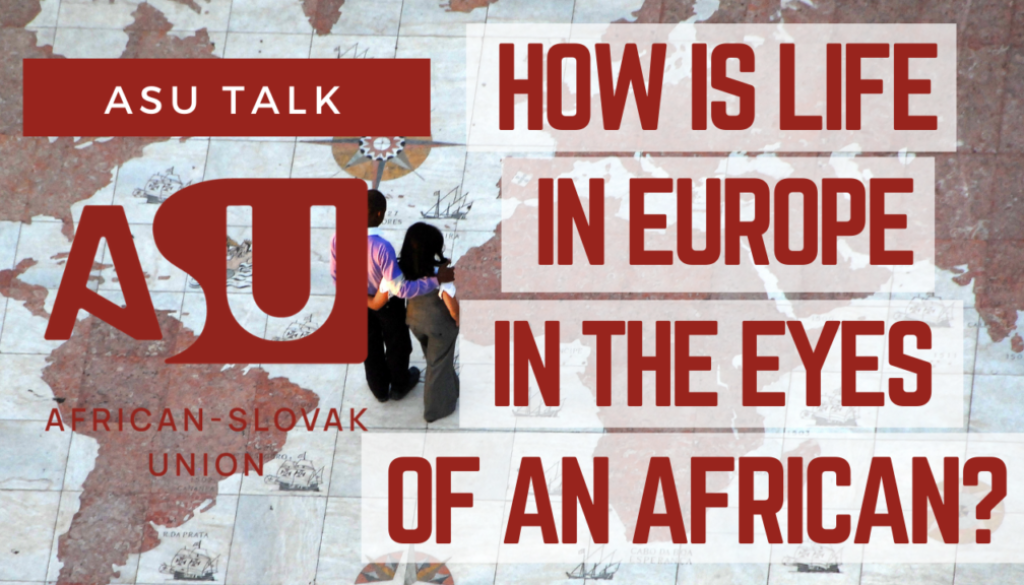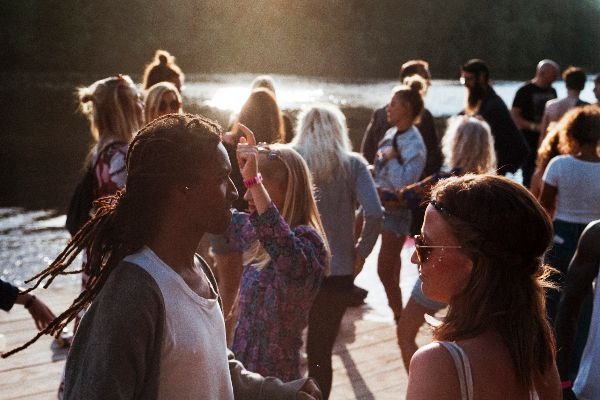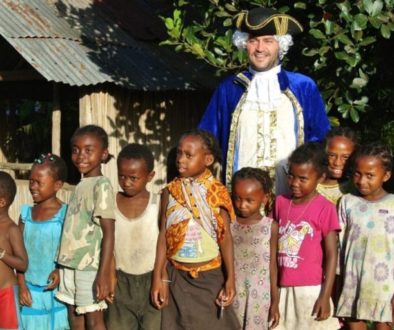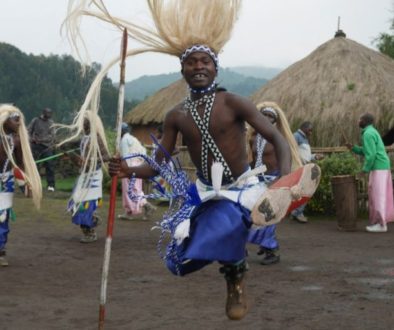Life in Europe in the Eyes of an African

What is Ubuntu? Do Slovaks still have Communism reflecting in their behavior? What does it take to learn German or Slovak as an expat?
In the latest online ASU Talk, we focused on how life in Europe is in the eyes of the Africans. We extended our invitation to Mrs. Mazvi Ngoshi from Zimbabwe, Mr. Adewale Adetiba from Nigeria and Mr. Martin Mayanja from Uganda.
The first, very obvious question that the foreigners usually hear, is: „What was your reason to come here?“. Wale grew up in a middle-class family in a sleepy little town in Nigeria, as he said, and his parents always wanted him to have higher education. Looking at the cost of obtaining a Master´s in United Kingdom, a traditional destination for most Nigerians, searched for other options. Inspired by a feedback from his friend, he turned his attention that way and since 2016 he has been living in Germany. Today, he has his degree, a stable job, and a family and is pretty happy.

Mazvi has been living in Slovakia for 10 years. For her, a major difference between Zimbabwe and Slovakia is people’s attitude. Working as a social skill and processes trainer within corporations, she often met locals who were shy to speak up. Be it in a discussion or a restaurant, when somebody orders a burger, but only eats the fries because the meat smells funny. They would not confront the waiter although they had paid for the whole meal. „We are not troublemakers,“ she would hear.
When Martin challenges the status quo, usually the answer is: „This is how it is. We just follow.“ His most vivid experience comes from buying his home. In a regular apartment, you can have permanent residence. In the home that he bought with his wife, so-called apartmán, which has different specifications, you normally are not able to do it. The place they bought, however, has an exception, so they have their permanent residence there, but also pay triple taxes as compared to regular apartments. „In Uganda, this would probably get to the Parliament and be fixed.“ He smiles. In his opinion, Slovaks are polite, but they let things pass which they should not.
When asked what was the most challenging experience for them, all three chuckled unanimously: „THE LANGUAGE!“
According to Martin it partially is the Africans’ fault, because they stay in their own comfort zone. „After three months of being forced to communicate on a daily basis, you would learn. Otherwise we are limiting our opportunities!“
Mazvi sees things from a little different angle. „If I lived in a smaller town or village, my chance would be higher. Being here for 10 years, I mingle a lot with Slovaks, but they just prefer to talk in English with me, because they want to practice.“
„Do you think Communism that had been in Slovakia still rears its ugly head up to now? Because during Communism, Czechoslovaks were afraid of the system, any discomfort such as asking questions could cause a huge penalty to your family like being sidelined in the socioeconomic participation. What is your take?“
For Mazvi, the past affects presence, the way people act, think and behave. It will not just switch off. In terms of asking questions it is still feel-able, as she had mentioned. People in team meetings don’t ask, because they are afraid of answers like „If you don’t like it, go somewhere else“.
„It is important to understand and interact with people from different strata of the society and in this case the local language reigns supreme. If you are satisfied within your community, it deprives you of rich stuff from people from other tiers that you probably don’t share much in common with.“, a Facebook user commented.
„It gives you fuller participation in the community,“ Wale agreed. „It influences your life in so many ways. It is a way to show you respect people.“
„Once you speak their language, you start to attract people towards you,“ Martin thinks. „The faces of the locals turn vibrant and they want to speak with you just because! It is one of the key things to harmonious integration. However, we never speak at home with my wife. She tries, and I just reply in English because I feel I am so slow.“
„Is there something like „Africanness“? What does connect you all in comparison with the Europeans?“
For Mazvi, it is important that people don’t look at Africa as a country. There are huge differences between people from the North, the South, the East or the West of the continent. But they all do have „Ubuntu“ – no matter where they come from, if they are in Slovakia and they are Africans, they share the togetherness. She remembered how she met an unknown black girl in a shopping mall and the girl was enthusiastically waiving at her in a way that anybody would think they are close friends! She attributes this to the fact that the black community in Slovakia is very limited.
For Martin, there also is a connection that is hard to explain. It feels difficult to him to pass a black person on the street without saying hi, whereas in Uganda he has not witnessed this with white people among themselves.
„What was the biggest positive realization or a wake-up call when coming to Europe? How did you imagine Europe when you were a child?“ one of the FB users asked.
Wale’s friends were wondering why he chose such a racist country as Germany. This made him feel a little petrified before his arrival, however, he reassures quickly, he received a huge amount of support, help and respect from the locals and he felt welcome.
Martin likes the organization a lot about his new home, as well as the fact that people tend to respect each other and other people’s property.
Mazvi had a very interesting experience working in a call centre in Bratislava, where she was supporting the British market. As soon as the customer found out she was in Slovakia, they asked her questions such as „Do you guys have electricity? And where exactly is Slovakia?“, which normally people would ask her about her homeland. She was also a little perplexed, when she reached the Bratislava airport for the first time, it being much smaller and less modern compared to the airport in Zimbabwe. She came across a few looks telling her „You poor African, you must be happy to finally be in Europe!“. Nonetheless, none of those people knew she was here because she wants to explore new things, not because of socioeconomic situations. „Africa is much more than poverty or wars!“ she exclaims.
One of the Facebook viewers agreed: „Africa is comprised of 55 countries. Beautifully diversified. It is a beautiful continent. People and cultures as unique as their diversity. There are always 2 sides to our continent, corruption might have lagged our progress (…), but yo!! Embracing Mamaland!“
Finally, the discussion closed with a very personal question: „What does it mean to be African in the European context? Are you proud?“
Martin would meet people who wish to be like him, who want to travel to Africa and they like to return there, they even call it home. Such things make him feel strong and proud to be a black man.
Mazvi, on the other hand, identifies rather as a Child of God and she just happens to come from Zimbabwe. „Everybody should be proud of their origin,“ she adds.
To Wale, a person is a sum of experience and to be able to call upon all that experience that he has, is something that he loves and is proud of.
Did you find some food for thought in this article? Please join us in our next edition of ASU Talk, like our Facebook, Instagram or LinkedIn page for updates and more events! Would you like to contribute? Feel free to be our speaker!





